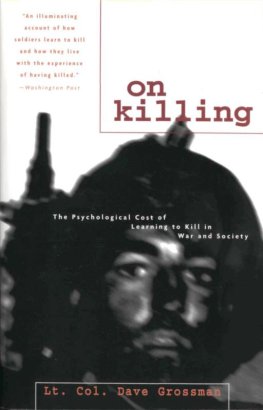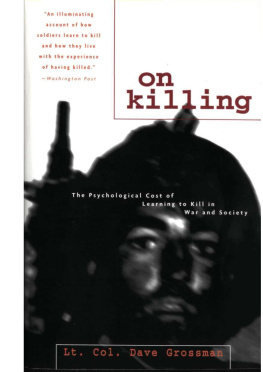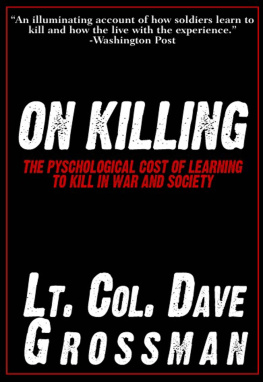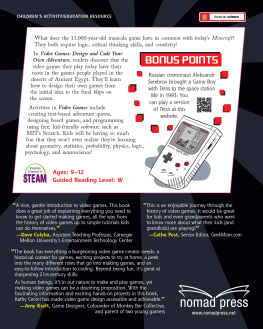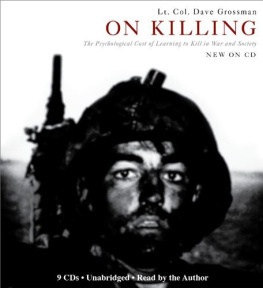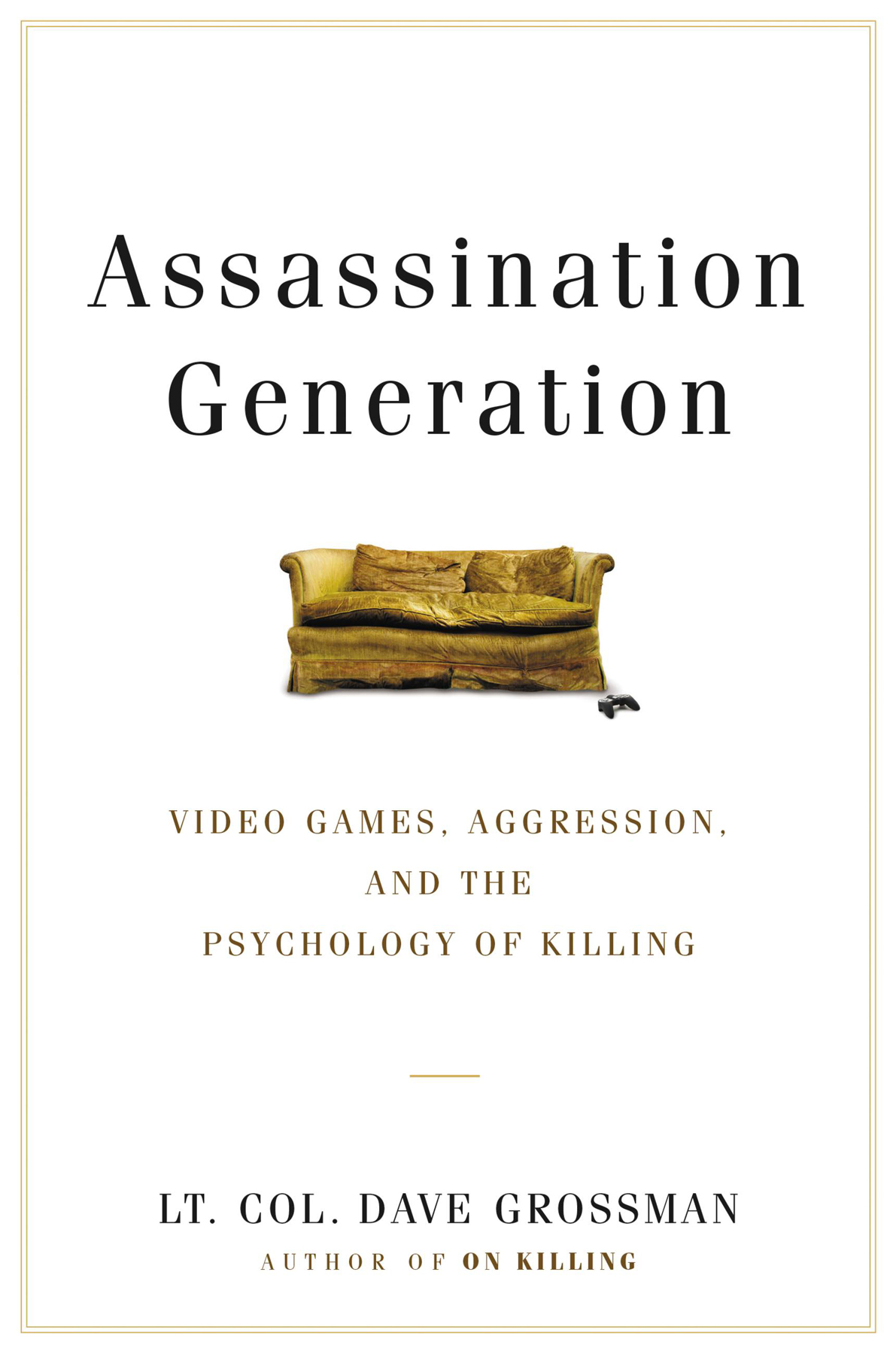with Loren W. Christensen
with Dr. Michael Asken and Loren W. Christensen
This is our first taskcaring for our children. Its our first job. If we dont get that right, we dont get anything right. Thats how, as a society, we will be judged.
These tragedies must end. And to end them, we must change.
President Barack Obama Newtown, Connecticut, Prayer Vigil December 16, 2012
The directive is simple: You are a police officer embarking on your first day in uniform. Finish your first patrol, Postal III instructs you, and dont fit up! Simple.
You begin strolling around a virtual city, complete with stray cats, parked cars, mom-and-pop shops, and a collection of people going about their business. It could be any city in America, and you look like the consummate police officer proudly protecting the public.
You hear sounds of a struggle in the distance. As you move toward the commotion, you realize that you are witnessing a mugging. Dont kill me! the female victim yells to her male attacker, Im a virgin! You move fast to apprehend and handcuff the mugger. Hes neutralized, lying on the ground. You begin to beat and kick him. Then, when you get tired, you pour gasoline on him and light the man on fire.
Man, that smells kind of good, you say as his flesh boils and melts away from his bones. Bacon bacon bacon!
At this point, you note that your bladder is full, so you begin to piss on your victim, whose skin blisters and chars as he dies.
You start to walk away, but since you arent quite finished, you stop to piss on a woman innocently sitting on the bench next to you. She reacts with horror. You note, Now the little flowers will grow!
A short while later, you see two teenage boys who appear to be fighting in the street. You yell, No fighting, children! Detention for everyone! before grabbing a stray cat and stuffing a grenade up its ass. Hold still, little gato explodio! you say, proud of your ingenuity. This will only hurt for a second. You hurl the cat at the teens. It explodes, sending the boys and the cats body parts and blood splattering across the street.
Unaffected by the scene, you continue on your patrol and see a man vandalizing a parked car. Clearly, this must be stopped. You throw a series of grenades at the car, blowing it up along with the vandal and a handful of pedestrians and onlookers. You watch their bloody limbs and chunks of flesh fly through the air. Oops. Hunting accident, you say. You pick up a severed human leg and casually toss it at a woman standing on the sidewalk. A snappy 1980s electronic pop music soundtrack starts to play in the background, ushering you on through the rest of your patrol.
Dont worry. There are hours of fun ahead.
First fifteen minutes of gameplay in Postal III (2011)
I m a former buck sergeant, paratrooper, Army Ranger, infantry company commander, and West Point psychology professor and current law enforcement trainer. Ive had a hand in training the men and women at the Federal Bureau of Investigation (FBI), the Drug Enforcement Administration, and the Bureau of Alcohol, Tobacco, Firearms, and Explosives, and in the Secret Service, the U.S. Marshals, and the Central Intelligence Agency. I also have served as a reserve deputy coroner in the state of Illinois. My previous books have focused on a topic that most Americans would rather not think aboutthe act of killing. As a military psychology professor, scholar, and trainer, I became interested in the subject of killing and, specifically, how we train our soldiers to kill. Others had examined the general mechanics and nature of war, but even with all this scholarship, no one addressed the specific act of killing: the intimacy and psychological impact of the act, its stages, its social and psychological implications and repercussions, and its resultant disorders. My first book, On Killing, was my attempt to rectify this. Today that book is on the United States Marine Corps Commandants Professional Reading List and has been translated into German, Spanish, Italian, Portuguese, Korean, Japanese, and Chinese. Writing it, I drew a reassuring conclusion about our basic nature: Despite an unbroken tradition across centuries of violence and war, the average human being is not, by nature, a killer.
Over the years, Ive delved into the body of scientific data and discovered the existence of a safety catch in humankind that inherently exists in healthy members of our species to prevent them from killing or seriously injuring one another. I studied how to work around this safety catch in military and police training. As I did so, I was continually plagued by one question: If it is so difficult to turn off the safety catch and teach our soldiers to kill in the face of deadly threats, how is it that acts of criminal violence are often committed with seeming ease?
This book represents my attempt to answer that question.
I am a soldier of twenty-four years service. I have been a sergeant in the 82nd Airborne Division, a platoon leader in the 9th (High Tech Test Bed) Division, and I have been a general staff officer and a company commander in the 7th (Light) Infantry Division. I am a parachute infantryman and an Army Ranger. I have been deployed to the Arctic tundra, Central American jungles, NATO headquarters, countries that were signatories to the Warsaw Pact, and countless mountains and deserts. I am a graduate of military schools ranging from the XVIII Airborne Corps NCO Academy to the former British Army Staff College. I graduated


